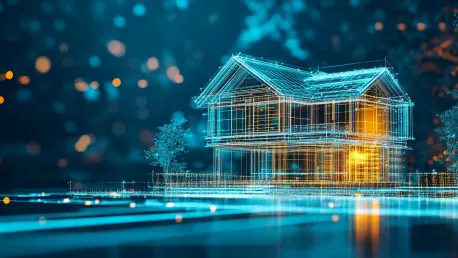At the International Builders’ Show in Las Vegas, an event known for showcasing cutting-edge construction trends and technologies, two industry leaders from Lux Homes, President Brad McNaughton and Director of Construction Brodie Raptis, encountered the future of home building predicated on artificial intelligence (AI). While AI has already made headway in various sectors, its application in custom home building addresses both long-standing inefficiencies and new-age client expectations. Given this backdrop, Brad and Brodie have found themselves at the cusp of a significant transformation in how homes are designed, built, and managed.
Enhancing Design and Efficiency
Brodie Raptis, initially a skeptic of AI, came back from an AI conference with newfound enthusiasm for its capabilities. His shift in perspective was fueled by the astonishing potential of AI-driven design tools that outperformed human designers in both speed and accuracy. These tools make real-time changes in home designs feasible, allowing alterations to layout and structure to be visualized instantaneously. This capability not only saves time for architects and builders but also makes the design process more interactive and satisfying for clients.
Brad McNaughton concurs with Brodie, emphasizing another transformative feature of AI: real-time project updates. In traditional home-building scenarios, information delays between contractors and clients are common, leading to misunderstandings and potential project setbacks. AI addresses this by providing continuous, real-time updates, thereby making the entire process more transparent. The clients are perpetually in the know, anticipating any changes and being part of decision-making in a way that was previously cumbersome. Thus, the efficiency and transparency gained through AI facilitate a smoother construction process.
Pioneering Smart Home Innovations
While integrating AI into design and communication has already showcased substantial improvements, the exploration of smart home technologies during the conference shed light on the luxurious possibilities brought about by these innovations. Among the technologies that caught their eye were smart glass, which alters its opacity on demand, and automated refrigerators that can manage groceries independently. These advancements extend to all facets of living spaces, offering conveniences that are shifting from futuristic to realistic.
A feature that particularly stood out was a high-tech toilet inspired by fashion designer Vera Wang. These kinds of sophisticated smart technologies, while currently considered high-end luxury items, hint at the future of standard home amenities. Brad McNaughton noted an expectation that as technology evolves, the costs of such luxury features would decrease, making these smart elements accessible in more mainstream builds. The inclusion of such cutting-edge features positions Lux Homes at the forefront of intelligent living solutions, thereby enriching the lifestyle experiences they offer to homeowners.
Looking Forward
At the International Builders’ Show in Las Vegas, known for highlighting the latest innovations in construction, two key figures from Lux Homes, President Brad McNaughton and Director of Construction Brodie Raptis, witnessed the emerging role of artificial intelligence (AI) in home building. AI has made significant inroads in various industries, and its introduction in custom home building is poised to address both enduring inefficiencies and evolving client demands. As Brad and Brodie explored the advancements presented at this pivotal event, they realized they were on the brink of a major shift in how homes are designed, constructed, and managed. AI’s potential to streamline processes, enhance precision, and personalize customer experiences is paving the way for a new era in residential construction. This transformation signifies not only an improvement in efficiency but also a profound change in meeting modern homeowner expectations, signifying a bright, tech-driven future for the industry.









